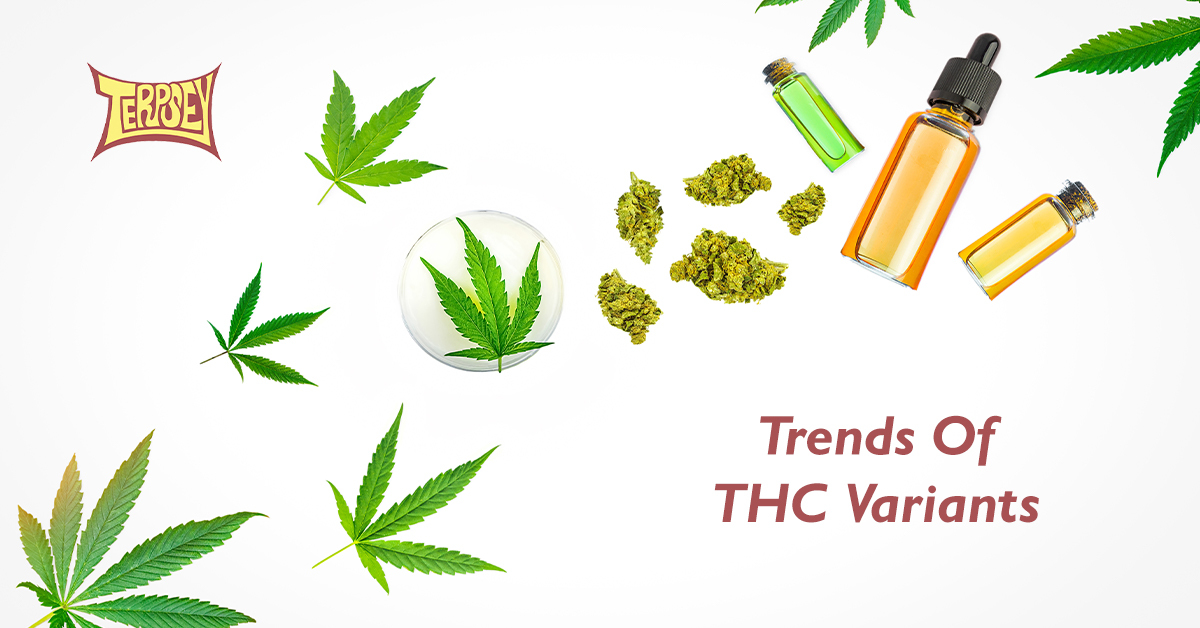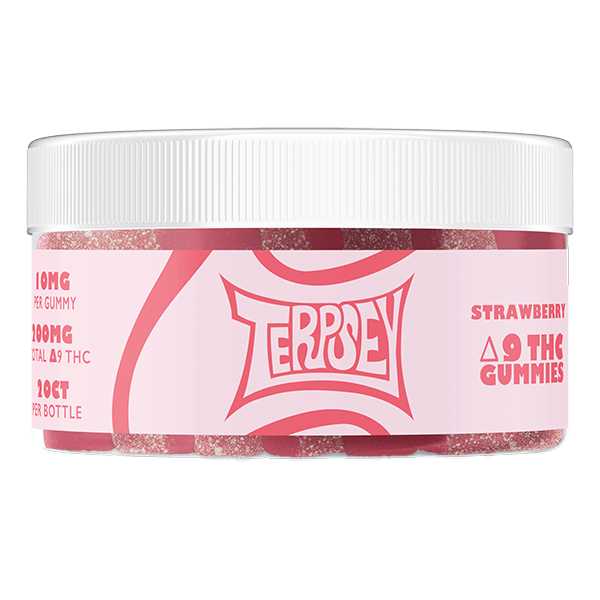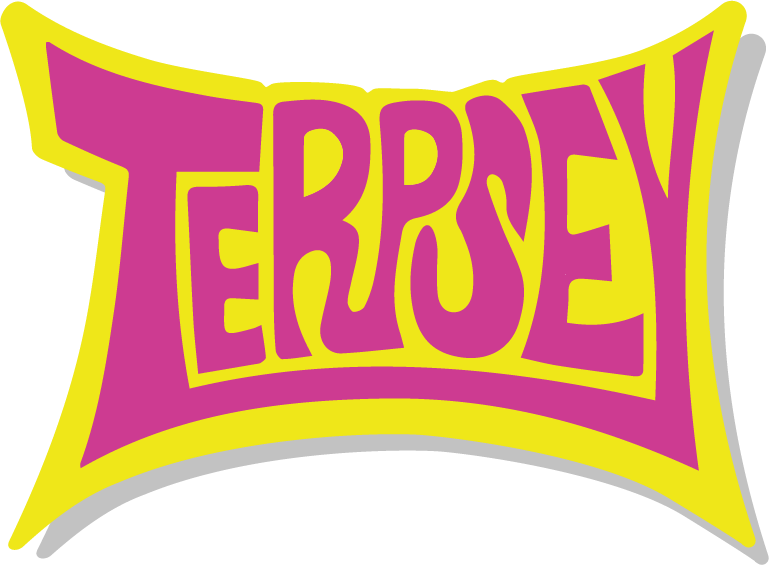
Trends Of THC Variants
Table of Contents
The public opinion toward using cannabis (hemp) compounds changed soon after regulatory changes. CBD (cannabidiol) and THC (delta-9 tetrahydrocannabinol) are the two leading cannabinoids naturally found in cannabis. While CBD has no intoxicating qualities, delta THC is famous for its psychotropic effects. THC provides a distinct recreational experience that CBD does not. If you want to know about different THC variants, go with the post.
The boom in the delta THC industry is apparent. It gained the same level of popularity as CBD over the years. If you are familiar with the cannabis industry, you may have already filled your shelves with these cannabinoids. But if you haven’t and want to know more about THC variants, go through this post. We tend to educate our customers about each type of Delta THC so they can make an informed decision.
Also Read: Reasons To Prefer Edible THC: Are They Effective?
Popular THC Variants Of Cannabinoids
CBD has long been the top contender, but now there’s a slight change. People are turning to THC and enjoying the mild euphoric high. Though CBD is a viable option, it is no longer the only one. Delta THC is the next star, and the trend is clear. Let us know more about THC variants and the reasons behind their enormous popularity.
Delta 8
Delta-8 is an analog isomer of delta-9 THC. Though it derives from a natural transformation process, it could also originate via synthetic strategies. Delta-9 THC develops into Delta-8 THC as it oxidizes and ages. Both have equivalent chemical makeup, including carbon, hydrogen, and oxygen. However, the difference lies in their atomic arrangements. Research shows that delta-8-THC has a lower affinity for the CB1 receptor and, as a result, has less potent psychoactive effects than delta-9-THC.
Naturally-occurring delta-8 is rare because the plant has it in moderate amounts. Due to less availability, manufacturers produce it artificially in laboratories. The process involves the use of CBD or THC as the raw material. Synthetic production of this minor cannabinoid is now more common.
Currently, there is limited scientific research on it, but its health and wellness benefits are evident. Anecdotal evidence and a few preclinical studies indicate that it can help treat the following ailments:
- Chronic pain
- Anxiety or panic attacks
- Stress
- Depression or bipolar disorder
- Vomiting and nausea
- Glaucoma
- Alzheimer’s disease
- Insomnia
The 2018 Farm Bill indirectly legalized the use of delta-8-THC products made from hemp without any restrictions. Though the bill did not specifically address the substance, the compound experienced a sharp rise in popularity. It attracted the interest of cannabis users, manufacturers, and medical communities in several countries.
Delta 9

The stems, leaves, and flowers of the cannabis plant contain tetrahydrocannabinolic acid (THCA). When heated in its raw form, THCA undergoes decarboxylation and transforms into delta 9 THC. The acidic form doesn’t have psychotropic features, but the newly formed substance, delta 9, does. Like CBD, THC can modulate ECS (endocannabinoid system) and help maintain internal balance. It can create a euphoric high feeling, but you can keep control of its effects if taken in limited amounts.
THC is the primary psychoactive chemical naturally found in hemp. It is not a new concept as it has been in use since ancient times. It comes from male and female cannabis plants, but female plants have much higher THC concentrations. When ingested in a moderate amount, its effects are predictable, safe, and tolerable. You will know how you will feel after consuming it. You can expect a high and a slackening of self-control. Some of the medicinal benefits associated with delta-9 THC are as follows:
- Antioxidant and anti-inflammatory effects
- Relieves mild to severe pain
- Reduces tension
- Muscle relaxant
- Prevent seizures or convulsions
- Protects brain cells
- Appetite stimulant
- Improves sleep quality
- Promotes relaxation
- Boost energy levels
- Alleviates stress and anxiety
- Inhibits tumor growth
THC-infused products are available in different forms, including candies, gummies, oils, tinctures, vape juices, pre-rolled joints, soft gels, and topical creams. Some of these products can treat typical disorders, while many can help mitigate symptoms of certain medical conditions.
Till now, FDA approved three synthetic THC formulations :
- Syndros (dronabinol)
- Marinol (dronabinol)
- Cesamet (nabilone)
The agency approved these products for therapeutic uses, including nausea (induced by cancer chemotherapy) and anorexia (associated with weight loss in AIDS patients).
Delta 10
Delta 10 is another THC analog isomer. Delta 8, Delta 9, and Delta 10 all occur at different points on the same molecular strand. People enjoy these THC isomers because each one has a unique effect. Some people relish the euphoric high of traditional D9 THC, but many prefer to try something new with Delta 8 and Delta 10.
Delta-10 THC is one of several hundred cannabinoids found in hemp and cannabis. However, it is a rare compound that appears in such trace amounts that extracting it from hemp would be a waste of time and plant material. There are hardly any naturally occurring high Delta-10 THC strains available today. To create this minor cannabinoid, processors must carefully conduct scientific procedures that convert CBD into Delta-10.
Delta-10 THC could interact with human ECS as THC does. Though research on its mechanism of action is not much, it could positively affect your mood, immunity, appetite, memory, and thought process. Both delta-9 THC and delta-8 THC have different strengths of psychoactive effects due to their affinity for the CB1 receptors in the brain and nervous system. Likewise, delta-10 could bind to CB1 receptors at high concentrations. Delta-10 can get you high, but it has a lower psychotropic potency than Delta-8 or Delta-9.
HHC
Hexahydrocannabinol (HHC) is a cannabinoid first synthesized in 1944 by Roger Adams (American chemist). He created HHC by combining two hydrogen molecules with Delta 9 THC. Even though this cannabinoid occurs naturally in hemp pollen and hemp seeds, it is only present in trace amounts. The process of hydrogenating THC makes it simple to produce HHC in bulk. THC undergoes a complete molecular transformation during this process. The new substance formed is HHC which is federally legal. According to its compound summary, HHC potency is higher than the average delta-8 THC product. However, it is slightly less effective than THC-O.
The THC double carbon bond disintegrates in HHC when hydrogenated and saturated with hydrogen atoms. Because hydrogen can withstand heat and UV exposure better than oxygen, it becomes more stable and has a longer shelf life. Users of HHC-infused products could sense a cerebral high. When HHC takes effect, they experience a calming effect, an uplifted mood, and less stress. Some may even feel euphoric and motivated. It generates the same wave of body relaxation as delta-8. However, it promotes relaxation without the sedative effects of delta-8 THC.
According to a preliminary study, the therapeutic potential of novel HHC analogs is significant. Researchers observed that this semi-synthetic cannabinoid acts as an anti-cancer agent by inhibiting tumor angiogenesis and cell proliferation.
THC-O
THC-O Acetate is a synthetic version of tetrahydrocannabinol. It is a non-natural cannabinoid formed through a chemical process known as acetylation. The synthesis method involves integrating THC extracts with acetic anhydride (a highly flammable and volatile substance). Due to the use of ignitable chemicals, their production requires specialized tools and expertise. The experts begin by transforming delta-8 THC from hemp-derived CBD. Subsequently, they combine anhydride with the delta-8 THC molecules to produce this THC variant.
The compound summary of THC-O illustrates that it is a highly potent THC variant. It could be five times as powerful as Delta-8 THC and three times as effective as Delta-9 THC. On the contrary, HHC has a higher potency than delta 8 THC but lower efficacy than delta 9.
Since THC-O comes in the category of legal hemp derivatives, it is an appealing option. Many reputed companies came forward with commercial goods containing THC in acetate form. You will find these products as gummies, tinctures, and vape cartridges.
Also Read: Therapeutic Uses for THC
Bottom Line: Trends Of THC Variants
Many cannabinoids came to light due to innovation in the cannabis industry. While THC and CBD are the most well-known, numerous other compounds are available with distinct properties. For example, delta-8 THC, delta-10, HHC, and THC-O are THC subtypes having immense therapeutic potential. Some are naturally found in hemp, while others involve critical laboratory processes for synthesis.
Recently, there has been a lot of hype surrounding these hemp-based THC variants. With time, demand for these cannabinoids is increasing as they gradually take over the market. Their unique features comprising potency, benefits, and effects make them stand out. Comparatively, delta-9 THC derived is still the best choice. It is more predictable, easy to dose, and available in a wide variety. Moreover, it has been around since ancient times and came to be used for rituals, medicine, rope, fiber, and recreation. People are more familiar with this hallucinogenic drug derived from industrial hemp.
Interesting Reads:
Hemp Derived Delta 9 THC Gummies vs. CBD Gummies
